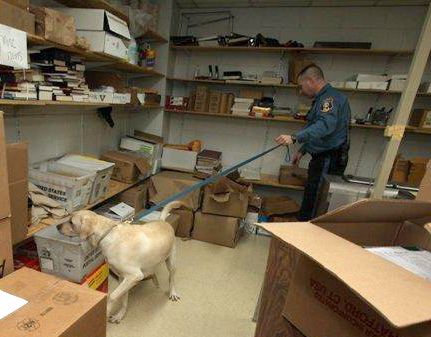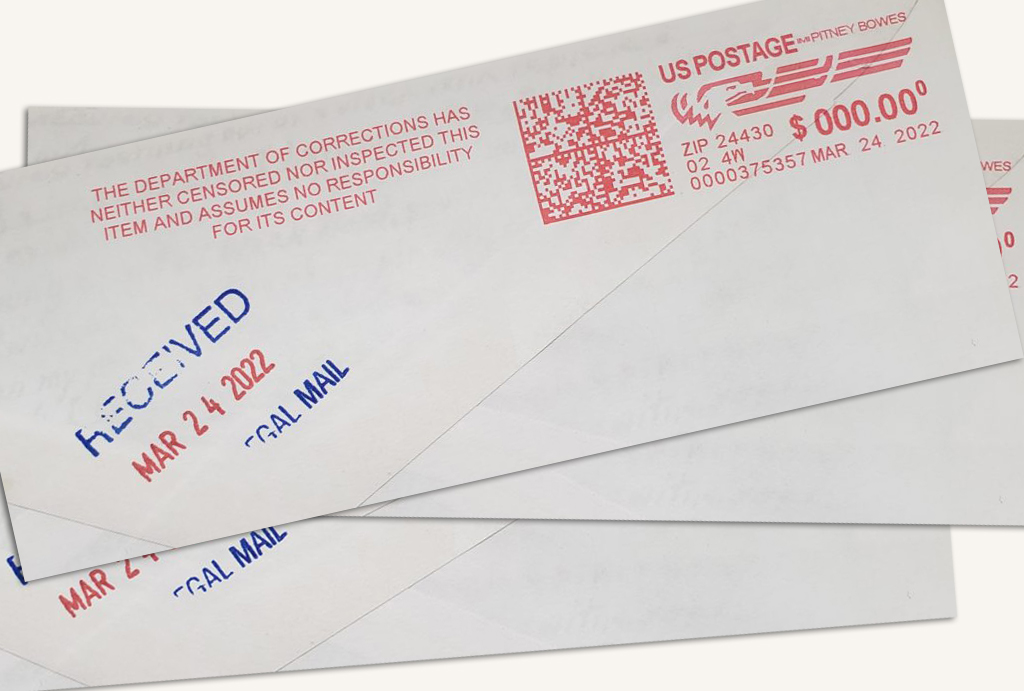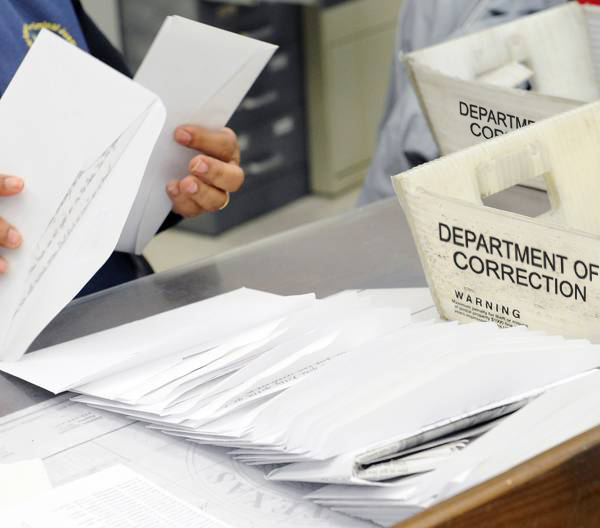
A Better Way to Screen
Mail and More
Incarcerated individuals’ personal mail has always been a popular way to smuggle drugs and contraband into jails and prisons, whether concealed in letters or items ranging from books to packages. The situation is growing worse as legal mail – inmates’ protected communications with attorneys and law firms – is increasingly being used as a means for smuggling due to its privileged nature.
Legal documents, often exchanged during court proceedings or meetings with counsel, fall under the same criteria as legal mail. Therefore, criminals are taking advantage of these protections and leveraging them as a new entry point. The need for drug and contraband detection doesn’t stop at just mail and documents. Once drugs end up inside the facility, through any number of other means, they will find their way to an inmate’s cell, driving the need for mobile and scalable screening.
LEGAL MAIL
Overcome
Challenges with Screening Legal Mail
Fraudulent legal mail is being used to smuggle drugs and contraband into correctional facilities because screening options are limited due to US Constitution mandates on privacy for protected legal communications. This forces manual, time-consuming mail screening and inspection processes to be used, with limited success.
Drug-treated papers, sprayed or printed, suboxone strips, small electronics, and contraband routinely evade manual approaches. Screening staff and officers are at serious risk of coming into contact with dangerous substances, including fentanyl, when opening mail items.
With MailSecur, mail screeners can quickly identify suspicious mail items, and it is the only solution that can do so without the need to open legal mail – meeting strict privacy and confidentiality requirements.


PERSONAL MAIL
Easily Screen and Process for Delivery
The sheer volume of incoming mail presents ample opportunity to introduce drugs and contraband into facilities. Whether handwritten letters from family members, greeting cards, or photos, personal mail comes in many shapes and sizes. Cost-effectively managing personal mail logistics, screening, and delivery is a challenge faced by nearly all correctional facilities, which also need to balance considerations to deliver original communications in a timely manner.
Unlike legacy technologies, MailSecur now enables correctional facilities to quickly scan original, unopened mail items and clear them for delivery to the intended recipient. MailSecur assists with drug and contraband detection, flagging suspect items for further analysis.
COURTS
Stop Fraudulent
Legal Documents
Any interactions outside of a controlled corrections environment increase the risk of contraband smuggling. Legal proceedings present a number of touchpoints – transferring to the court facility, meetings held in private with legal counsel, and opportunities for interaction with friends and family members inside the courtroom. This offers ample opportunity to exchange concealed drugs, particularly drug-treated papers, as they are nearly indistinguishable from normal paper and disguised as legal documents.
Instances of lawyers carrying drugs and other contraband into courts for their clients are on the rise. This places numerous individuals at risk – officers, staff, the general public, and inmates. Screening documents, legal or otherwise, as they enter the courtroom provides another layer of protection for the detection of drugs and contraband. MailSecur provides the same powerful contraband mail screening approach in a court setting as it does in a prison mailroom. All incoming documents and files can be screened, while preserving privacy, and quickly cleared to enter the facility or flagged as suspicious for further inspection.

